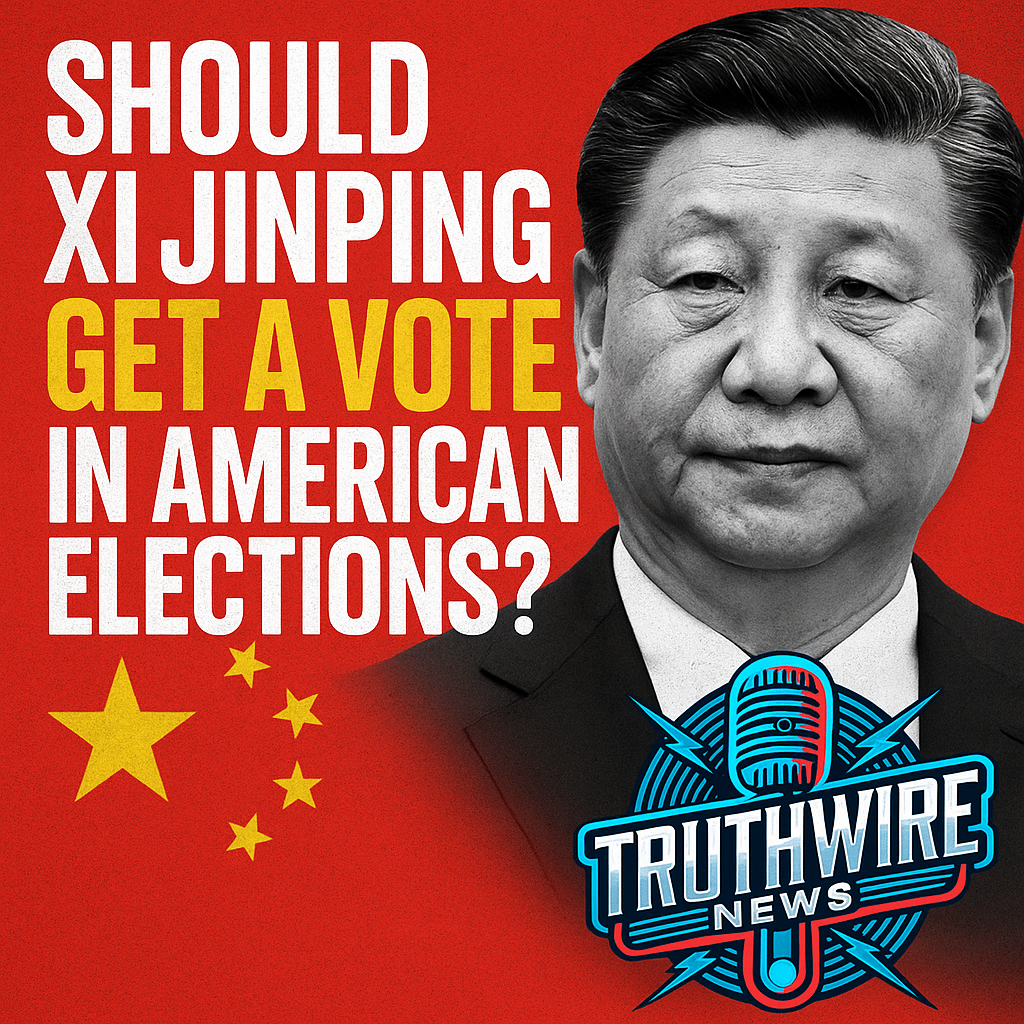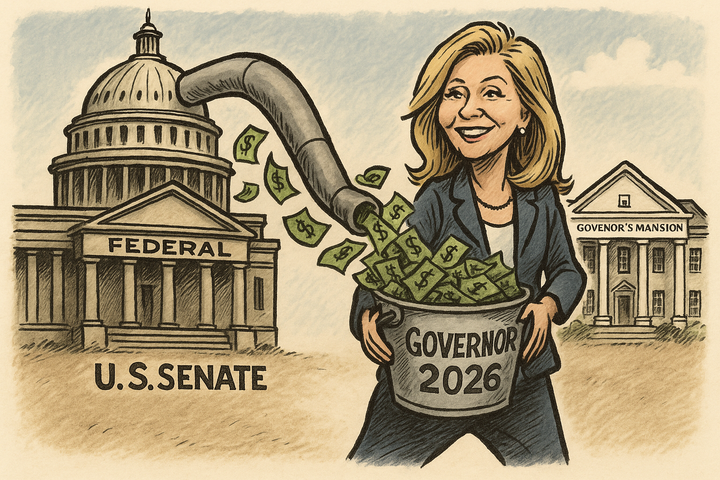Open primaries let Democrats tilt GOP outcomes in Tennessee, muting conservative voices. While leaders like Jack Johnson block caucuses and dodge closed primaries, Republicans face a choice: keep Democrat-flavored nominees—or close the primaries.
Should Xi Jinping get a vote in American elections? The question is laughable. Of course he shouldn’t. People who live outside the United States, who have no part in our culture or history, who have no reason to be loyal to America, who neither acknowledge its authority nor promise to restrain the same, they just aren’t supposed to be voting for who will rule us. To vote is to govern, in the American system, and we are not supposed to be governed by foreigners. American votes decide American problems (when the administrative state, the judges, and legislative interference don’t interfere).
So far so good. Now, let’s drill down to primary elections. In state-level primary elections, Tennesseans get to choose who will be the party candidates they are presented with come election season. Republicans choose their preferred candidate to run, and Democrats do the same. As such, primaries are part of internal party governance. The primary is where the party learns what its voters want it to be. Whether the population in general likes the candidate chosen—that’s a matter for the general election.
In the 2025 legislative session, after all the hubbub of the ‘special session’, how we run our primaries became a big issue. See, Tennessee has open primaries. An ‘open’ primary is one which doesn’t check for party affiliation. Tennessee does require voting locations to post warnings that voters must be ‘bona fide’ members of their claimed party, but it does no checks and has no legal standard for what ‘bona fide’ means. If I, a hypothetical long-time Democrat, walk in and vote in a Republican primary before voting for the Democrat in the general election, I can just say that I was feeling mighty Republican when I voted in the primary, regardless of other evidence.
Tennessee Republicans have proposed two alternatives to open primaries: closed primaries and caucuses. Closed primaries, as proposed by Senate Bill 886 last session, are primaries which require prospective voters to demonstrate their party membership by some method beyond mere assertion (SB886 required formal legal declaration with a waiting period). Currently, closed primaries aren’t possible under Tennessee law. A caucus, meanwhile, is a formal meeting of party members (determined by the party’s criteria) in which they vote for their preferred candidate, thus choosing who will run for the party in the general election. Caucuses were possible under Tennessee law until early 2025, with some areas maintaining their ability for the moment. The distinctive of both methods is that they deny outsiders the ability to vote in party primaries.
What is the point of a party primary? The point of a general election is to choose a candidate who most completely represents the voter-base (ideally in worldview, not just aesthetics). The point of a party primary follows the same pattern, just with a different constituency. Primaries are meant to choose a candidate who best represents the political party’s membership—in other words, the guy who can get the most votes from the constituency. It’s meant to pick out the guy the party wants to put up for election.
An open primary, obviously, doesn’t serve that purpose well. Just as Americans are best represented when only Americans vote, so Republicans are best represented when only Republicans vote. Particularly in the many areas of the state where Democratic primaries are nearly irrelevant (because no Democrat has a real chance of winning the general election), the effect of an open primary is to pull the Republican party’s choice towards the Democratic preference, to dull the desires of the Republican base. Democratic voters become the swing votes who decide the races the Republican voter base is split on. They act as a constant bias in the primary process, a bias in favor of liberal candidates (or do-nothings). In every race, the guy closest to the Democrats gets a few extra percentage points tacked onto his share of the Republican vote, a few extra points made up of Democrat voters.
Now, to listen to Republican party leadership, you’d think open primaries were the tool of Nancy Pelosi herself. State Senate Majority Leader Jack Johnson puts it this way on his website: “Republican voters deserve the opportunity to select their party’s nominees in a free and fair election—without interference from Democrats or party insiders.” He seems almost to endorse closed primaries, here. The impression is false. In actuality, this sentence is the justification he gives for boasting about Senate Bill 799, a bill passed in early 2025 to stop local party branches from running caucuses. As noted above, closed primaries haven’t been an option under current law for a while; Senate Bill 799 was Senator Johnson’s successful bid to stop caucuses, as he boasts on his website. With closed primaries unavailable and caucuses being forcibly phased out, open primaries are the only option left.
Johnson uses some remarkable language in describing efforts to keep Republican primaries Republican. He calls caucuses “closed-door conventions” and “insider-controlled.” Well, in a sense he’s right. Caucuses are obviously about Republicans being in charge of Republican nominations, just as restricting the vote to American citizens is about Americans being in charge of American government.
On the one hand, Johnson has a point about caucuses. They can potentially disadvantage some qualifying voters whose jobs can conflict with the strict schedule of a caucus, though presumably a two-day caucus would largely fix the issue. The argument has absolutely no weight against closed primaries, however, as they don’t have any more limits on location or dates than closed primaries. His insinuations of corruption from ‘party insiders,’ on the other hand, beggar belief. He argues, bluntly, that keeping Democrats out of the nomination process is equivalent to inviting Democratic influence into said process
As a matter of fact, Republicans in the state congress are remarkably hesitant to close primaries and remarkably eager to keep them open. As already noted, SB799 passed, aided by Senator Johnson’s guiding hand. That bill forces many parts of the state to keep to their primaries open, including to non-professed Democrats, an effective invitation to voter fraud that’s barely even illegal (Democrats may not be allowed to vote in Republican primaries, but it doesn’t matter when ‘I felt like being a Republican for 24-hours’ is sufficient defense).
House Bill 886, in contrast to Johnson’s pride-and-joy, SB799, was designed calibrated to protect Republican primaries. As written, it required voters to register their party significantly ahead of time before voting in the appropriate primary. That measure would give Tennessee closed primaries, ensuring that the Republicans get to elect their candidate without noticeable Democrat interference (and vice versa), making sure the choice offered in the general election would be Democrat v. Republican, not Democrat v. Democrat-flavored-Republican.
House Bill 886, the bill to close primaries, didn’t even make it to a recorded vote in the senate (Senate Bill 777). It made it through several committee votes in the house, as well as past some committees in the Senate, but in the end, it was strangled before it could reach the floor. On his website, Johnson touts legislation that sounds similar- pre-primary party registration- but crucially still endorses the current regime of ‘If he says he’s Republican right now, that’s good enough.’ Party registration is literally an empty gesture, in this context, unless it’s linked to right to vote in primaries the way HB886 would have linked it, the way Johnson manifestly refuses to link it.
Why are Republican representatives so uninterested in protecting Republican (and Democrat) primaries?
Every Republican house representative in Tennessee, every Republican senator, even the Republican governor was chosen by an open primary. For some, the openness of the primary was an extra challenge. They are the distinctively Republican, distinctively conservative candidates. For others? Well, more than a few of our Republican politicians probably recognize that they won their own primary races with the aid of many Democrats. Some may even, in private, attribute their victory to the Democratic swing vote in those primary races. This cohort, far from finding open primaries problematic, rely on the lack of safeguards to be re-elected. Their incentive to keep the primaries open is that the open primaries keep them in office.
Republican primaries should indeed be decided by Republicans, as Sen. Johnson hurries to say. How, though? So long as open primaries are the status quo, the way Johnson advocates, we’re biasing the results of every primary election away from Republicans, handing over some amount of control to Democratic crossover voters, whether you consider them malevolent or intrepid. The result for the party in general is a Democrat-flavored Republican party, one whose membership in some part relies on being more like Democrats than their competition.
Or we could just close the primaries.





Comments ()